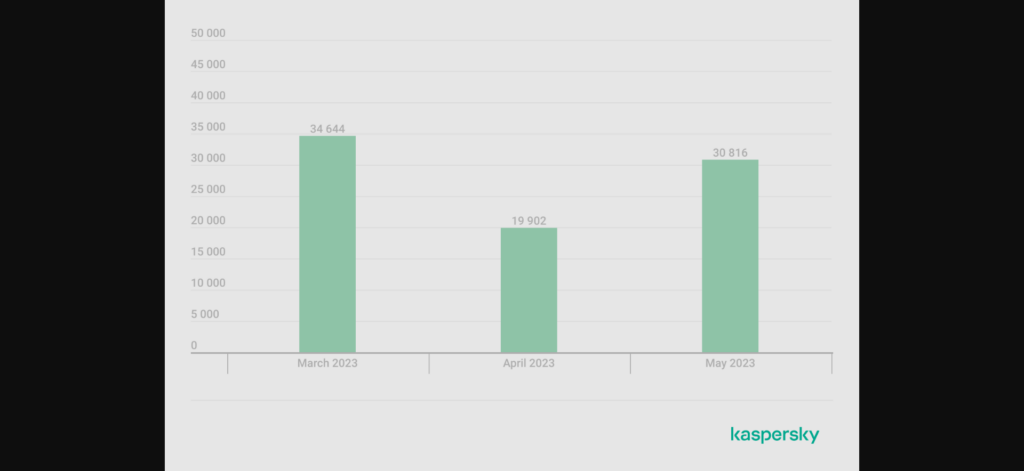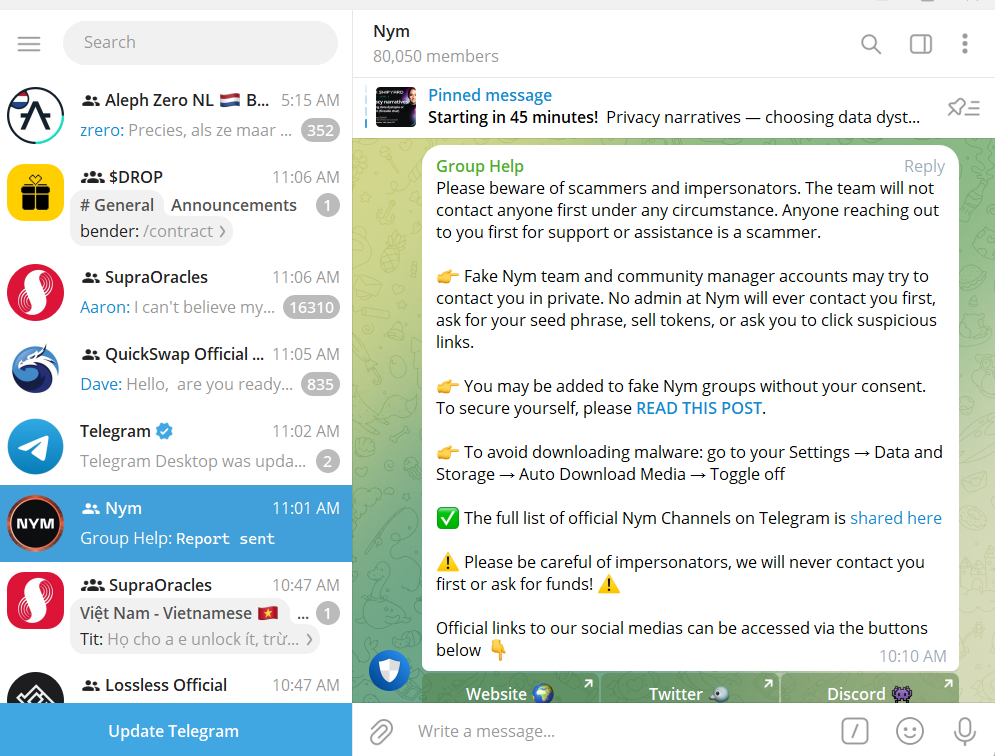With the early Bull Market Vibe, scammers are more active now. Stay safe. Here are a few ways you might get scammed in crypto.
Most of this happens on social media. So, let’s take a look at what crypto scammers come up with.
1) Discord Servers
Discord is a remarkable and useful platform for crypto users. Every self-respecting crypto project has a Discord server. It’s great for asking the team or moderators to help with issues you experience. They can also help build strong online communities.
However, there are also many crypto scammers out and about on Discord. Here’s a link to a Discord article about scammers. There are a few ways they try to get to you, for example:
- Via DM. You can block this by going to the top-left corner of a server and clicking on the ‘v‘ sign. In the dropdown menu, click on ‘Privacy setting‘, and disable the ‘Direct message‘ option.
- Friend requests. Don’t accept any friend requests from people you don’t know.
- Posting links in channels, with fake identities. For fake identities, if they pose like a mod or team member, compare profiles. Be careful with links, since the posted link may bring you to a different URL once you click on it. Ask in the channel if the links are safe.

Source: Discord
2) Phishing Emails
With phishing emails, crypto scammers target hot and cold wallets. For hot wallets, they want to get their hands on your seed phrase. The scammers use similar email addresses as the project they’re imitating. Their emails also have the same layout as the original project’s emails. For example, from a crypto exchange.
Then, they will ask you to confirm a transaction. Another option is to ask to verify your wallet again. Once you click the link, you find yourself on a page where you’re asked to enter your seed phrase. Be aware, don’t enter your seed phrase. Legit crypto projects or exchanges won’t send out emails like this.
For cold wallets, the scammers use a more sophisticated method. You can find a good explanation here. The picture below shows the number of detected phishing emails. The period covered is between March and May 2023. Here is a chart with some stats of how many people were scammed this way.

Source: Kasparsky
3) Telegram DMs
You can receive many unsolicited Telegram DMs. The crypto scammers may ask to invest or take part in get-rich-quick schemes. Or, they may pose as moderators if you ask a question about an issue you experience. Don’t click on any links in these DMs. So, common crypto scammers’ tactics on Telegram, involve, among others,
- Phishing. Using phishing sites to get their hands on your data.
- Crypto expert scams. They get you to make deposits for amazing deals. Once you want to withdraw your money, they’re gone.
- Pump and dumps. Promising high returns on your investment. However, you can’t get your money back once you wish to withdraw it.
- Bots. These work like phishing sites.
- Tech support. They pretend to be tech support but try to get access to your wallet.
- Off platform. Trying to lure you away from Telegram, to dodgy websites that may try to add malware to your devices.
Be vigilant and look out for spelling or grammar errors. So, never provide personal information, like login credentials or bank/wallet details. No genuine project or moderator will ask for this.

Source: Telegram
4) NFTs
NFTs are a popular medium. They are well-established in the crypto space. Here are some common tactics that crypto scammers may use.
-
Rug pulls
This is most likely the most popular NFT scam. Project owners hype a new mint. Once they receive a sizeable amount of money, they drop the project and leave it.
-
Phishing
Using fake websites that try to get your seed phrases or private wallet keys.
-
Bidding Scams
This happens on secondary NFT marketplaces when you want to sell your NFT. The buyer, or scammer, places a high bid. You accept it, but moments before payment, they switch to a different, cheaper, crypto. Always check the cryptocurrency you’re paid with.
Recently, a large number of community users have reported that they have recently received phishing emails disguised as Opensea official, with content such as NFT Offers. OpenSea has stated before that user emails and even developer API keys may be leaked because the supplier is… pic.twitter.com/koVH9o6OKG
— Wu Blockchain (@WuBlockchain) November 14, 2023
Conclusion
The bull run is knocking on the door. However, with this, there’s a whole new batch of scammers out and about. They smell new money, and they want their share of it. We provide you with a few samples of their tactics. There’s also an explanation on how to avoid their traps. Stay safe out there!
Disclaimer
The information discussed by Altcoin Buzz is not financial advice. This is for educational, entertainment, and informational purposes only. Any information or strategies are thoughts and opinions relevant to the accepted levels of risk tolerance of the writer/reviewers, and their risk tolerance may be different from yours.
We are not responsible for any losses that you may incur as a result of any investments directly or indirectly related to the information provided. Bitcoin and other cryptocurrencies are high-risk investments, so please do your due diligence.
Copyright Altcoin Buzz Pte Ltd.
The post How to get Scammed in Crypto appeared first on Altcoin Buzz.


